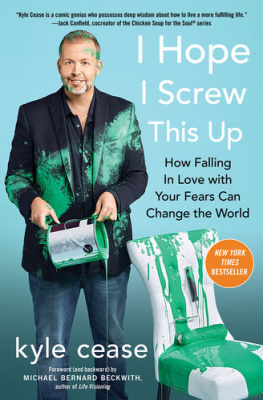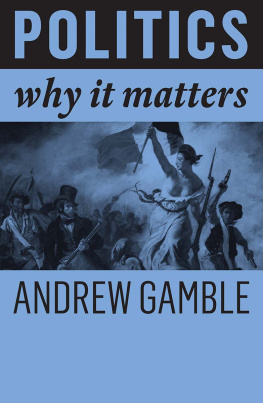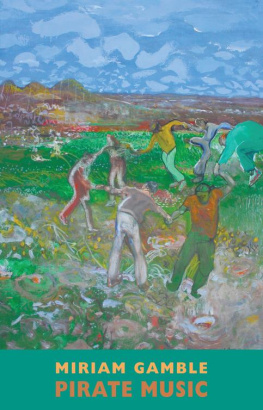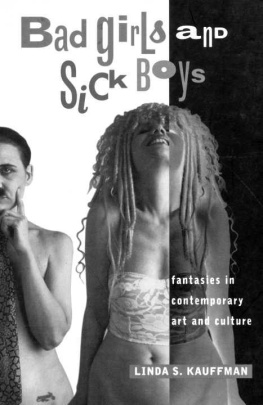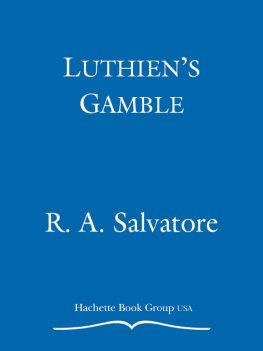Ione Gamble - Poor Little Sick Girls
Here you can read online Ione Gamble - Poor Little Sick Girls full text of the book (entire story) in english for free. Download pdf and epub, get meaning, cover and reviews about this ebook. year: 2022, publisher: Little,Brown, genre: Home and family. Description of the work, (preface) as well as reviews are available. Best literature library LitArk.com created for fans of good reading and offers a wide selection of genres:
Romance novel
Science fiction
Adventure
Detective
Science
History
Home and family
Prose
Art
Politics
Computer
Non-fiction
Religion
Business
Children
Humor
Choose a favorite category and find really read worthwhile books. Enjoy immersion in the world of imagination, feel the emotions of the characters or learn something new for yourself, make an fascinating discovery.

- Book:Poor Little Sick Girls
- Author:
- Publisher:Little,Brown
- Genre:
- Year:2022
- Rating:5 / 5
- Favourites:Add to favourites
- Your mark:
- 100
- 1
- 2
- 3
- 4
- 5
Poor Little Sick Girls: summary, description and annotation
We offer to read an annotation, description, summary or preface (depends on what the author of the book "Poor Little Sick Girls" wrote himself). If you haven't found the necessary information about the book — write in the comments, we will try to find it.
Poor Little Sick Girls — read online for free the complete book (whole text) full work
Below is the text of the book, divided by pages. System saving the place of the last page read, allows you to conveniently read the book "Poor Little Sick Girls" online for free, without having to search again every time where you left off. Put a bookmark, and you can go to the page where you finished reading at any time.
Font size:
Interval:
Bookmark:
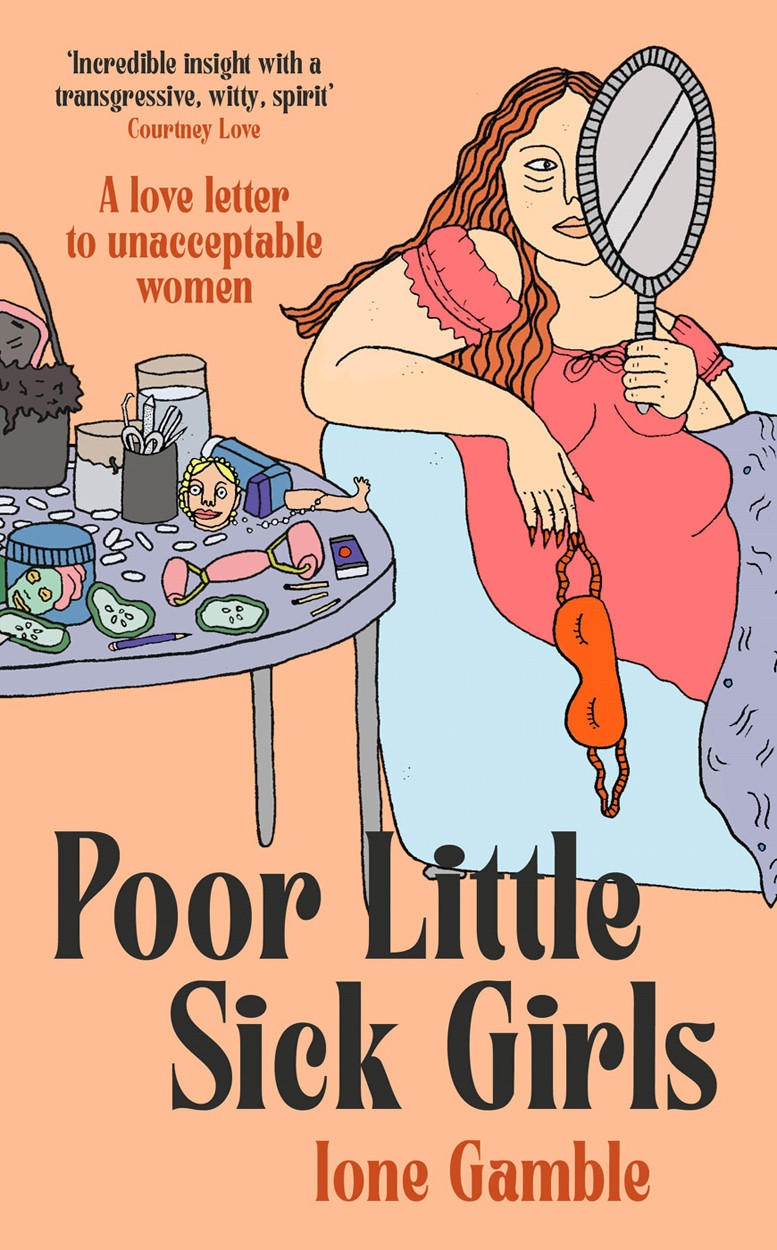
Ione Gamble is a writer and editor based in London. Founding Polyester zine at twenty years old, the publication has gone on to become one of the worlds leading voices in intersectional feminist publishing. Focusing on the rise of social media and identity politics, Ione and Polyester have built a community of strong minded, marginalised people determined to carve their place in a world that continues to ignore them. She has been named an editor shaping the future of magazines by i-D magazine, and a New Debutante by Tatler. She is also the host of the Polyester Podcast. Poor Little Sick Girls is her debut book.
Published by Dialogue Books
ISBN: 978-0-349-70240-7
Copyright 2022 by Ione Gamble
The moral right of the author has been asserted.
Cover illustration: Polly Nor
All rights reserved. No part of this publication may be reproduced, stored in a retrieval system, or transmitted, in any form or by any means, without the prior permission in writing of the publisher.
The publisher is not responsible for websites (or their content) that are not owned by the publisher.
Dialogue Books
Little, Brown Book Group
Carmelite House
50 Victoria Embankment
London EC4Y 0DZ
www.littlebrown.co.uk
www.hachette.co.uk
For Alfie. I love you.
Ive always had a complicated relationship with the void.
Defined by Oxford languages as: noun: a completely empty space, the black void of space.
A vast emptiness, a concept to describe the incomprehensible. The void has become a catch-all among my generation for the general lack of purpose or feeling of belonging many experience when moving through the universe. Dont get me wrong, its not as if Ive never considered my place in the world, who I am and why I was put on the planet. Ive read about existentialism; not from philosophers, but from women my age on the internet. Ive scrolled through relatable viral tweet after relatable viral tweet about the vast emptiness of existence. Ive even double-tapped a few. But on the whole, as someone who was diagnosed with a chronic illness in their late teens, the void itself has never been something Ive fully understood or felt.
Growing up in the early age of social media, I was surrounded by my peers, wondering where they fitted in. First through the lens of teen angst and coming-of-age girl rage, filtered through confessional Tumblr posts and autobiographical artwork dealing with the trials and tribulations of growing up. I gazed at my laptop screen as accounts I followed banded together to take on the worlds wrongs, to make sense of the mess that is femininity, and to push against the still restrictive stereotypes projected onto girls both on and off the internet. I admired those around me filling their voids with a sense of community, belonging and purpose. I gorged on the work published by people much more confident than me, unable to fully comprehend their confusion about our reality, but awestruck by their ability to post their thoughts without fear of judgement.
My generations struggle to get a grasp on what our place is doesnt subside as we enter adulthood. Were the least likely to own our own house, to marry, or to put down any tangible roots. Weve had to grow up under right-wing governments who stripped away one by one the benefits experienced by our parents. However, while those around me bathe in uncertainty, Ive always felt annoyingly sure of who I was meant to be. As a child, I would create mental checklists of what my adulthood would look like. Id carve myself out full careers, choose which university course to study years before I could apply, and work quiet ly but tirelessly to make sure my future would be the one I expected. Daydreaming about my future self was a far more effective form of escapism than any book, film or other outlet would allow me. Id plan years of my life well in advance: where I would live, the type of work I would undertake. I spent my teen years convinced that my life would really start if I could just plan my future well enough to make it past growing up.
What I didnt account for in an infancy spent preparing for adulthood was being diagnosed with an incurable illness before Id even turned twenty. Four months into my first year at university, I was rushed into the acute medical ward of Epsom Hospital following over six months of internal bleeding, weight loss, and a strange habit of fainting at any given moment. After spending the first twenty-four hours in a haze of sedation and confusion, I came to hooked up to a drip of steroids and being spoken to by doctors who provided few answers.
Even when faced with a world-altering medical condition, I remained irritatingly insistent that a diagnosis of Crohns disease wouldnt screw up my plans. During my first hospital stay, I ignored the advice of doctors who urged me to rest, and instead made the astute decision to temporarily discharge myself to attend a seminar at university despite medical professionals advising me I could very easily die if I did so.
I might have chosen to ignore both my clinicians and my body in favour of attempting to further my education, but in the days that followed, I learned that my health or lack thereof would have more of an impact on my life than a 2:1 from a middling university. Crohns disease is a type of inflammatory bowel disease. Little is known about it, but many classify the illness as an autoimmune condition. In short, my digestive system views itself as a foreign object it should attack. Severity of the condition varies, but my symptoms include abdominal pain, low energy, and a general feeling of having no idea what is going on with my bowels. Its unknown why people contract Crohns. Its not easily pinpointed to one specific trigger; anything from unlucky genes to stress, a food group, lack of sleep or an internal bodily reaction can set the disease in motion.
During the first couple of years of my life as a chronically ill woman, I refused to believe my condition would be any more prominent in my life than a minor inconvenience. Despite hospital stays, medication changes and multiple specialist appointments, despite having to inject myself with immunosuppressants, suffering extreme joint pain and debilitating fatigue, I set about my predetermined plans as if nothing had happened. When approaching life with such extreme denial and tunnel vision, the void seemed further away than ever before.
I discovered very quickly that the problem with ignoring something is that it doesnt make it disappear. While I remained clear on the direction I wished my life to take, my body had different plans. Quantifiably, as the months ticked by, my condition was improving: inflammatory markers derived from blood tests were down, my stomach was healing itself from the inside, and I was being tapered off the steroids that bloated my face. But moving from university to the working world, I was faced with the realisation that my Crohns disease wouldnt diminish just because I willed it to.
The more the disease settled into my body, the more I realised my symptoms wouldnt budge. I would spend hours staring at a screen, completely overcome by brain fog that refused to dissipate despite looming deadlines. Required to spend long days at my desk, I found myself instead locked in the staff loo, doubled over in pain and unable to move. As my symptoms became more and more prevalent, anxiety mounted, and the thought of entering the office each day filled me with dread.
I left my dream job due to my employers being unable to adapt my position to accommodate my illness. Through a combination of my inability to work a normal nine-to-five and my bodys insistence on shutting down, which forced me to sleep for a few hours in the middle of the day, my condition was met with gross misunderstanding from the majority of people I came into contact with. Piece by piece, the vision Id conjured of what my adult life would look like began to fall apart.
Font size:
Interval:
Bookmark:
Similar books «Poor Little Sick Girls»
Look at similar books to Poor Little Sick Girls. We have selected literature similar in name and meaning in the hope of providing readers with more options to find new, interesting, not yet read works.
Discussion, reviews of the book Poor Little Sick Girls and just readers' own opinions. Leave your comments, write what you think about the work, its meaning or the main characters. Specify what exactly you liked and what you didn't like, and why you think so.






